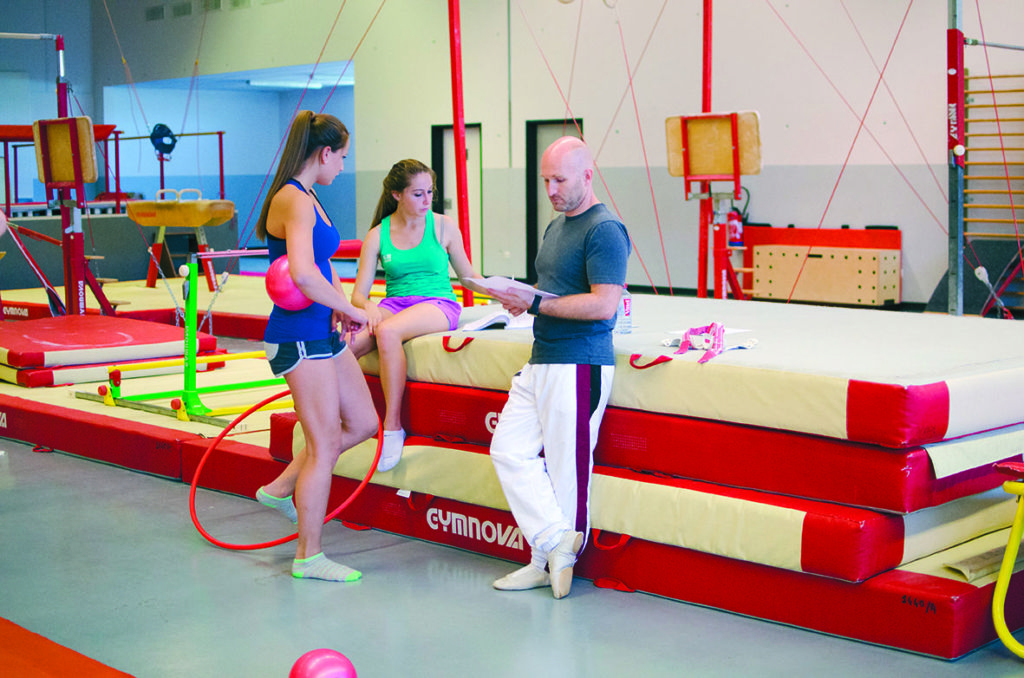STAPS: guaranteed professional integration!
With 700 students enrolled in the first year for the 2017-2018 academic year, STAPS remains one of the most popular post-baccalaureate courses among students in Montpellier. In addition to the excellence of the training provided, the very high rate of professional integration of its master's students obviously has something to do with it.

Photo © Miss Buffet Froid
The UFR STAPS (science and technology of physical and sports activities) in Montpellier was founded in 1976. At the time, the (single-sex) courses offered by what was known as the "UER d'EPS" were aimed exclusively at training sports teachers. In 1980, the UFR acquired its own infrastructure on the Veyrassi campus in the north of the city. Despite the continuous growth in its student numbers, the professional integration of its students has never wavered.
Professional integration
It was in the 1980s that STAPS departments began to diversify their course offerings. A variety of courses, all related to sports, gradually appeared, such as "Adapted Physical Activity and Health," "Sports Training," "Sports Management," "Education and Motor Skills," and "Ergonomics."
Today, no fewer than 11 master's degrees are offered at the UFR STAPS in Montpellier. This varied range of professional training programs (one of the most diverse in France) explains the exceptional professional integration rate of its master's students: 93%. "We train students for almost all professions related to sport, which, in addition to being an essential element of well-being and quality of life, is and will remain an attractive value in which people will want to invest. It's such a vast sector that there will always be work to be found!" predicts Didier Delignières.
A beneficial reform?
"At the national level, the number of students enrolled in STAPS has doubled since 2007," continues the dean ofthe UFR STAPS in Montpellier. The president of the Conference of STAPS Directors and Deans explains this situation precisely by the often truncated image that new high school graduates have of the field: "Many enroll in STAPS thinking that it's a 'cool' field of study. But STAPS isn't just about playing sports. While a third of the time is indeed devoted to physical activity, most of the time is spent acquiring theoretical knowledge sitting at a desk!"
Because they do not have the right profile for higher education, more than 60% of them now fail in their first year atthe UFR STAPS Montpellier. This is an unacceptable situation for Didier Delignières, which he believes is largely due to the lottery system that leaves it to chance to select the students who are best suited to his lecture halls. "With the new university assignment procedures, default or unjustified placements will quickly disappear," says the dean of the UFR STAPS Montpellier.
Presented to the Council of Ministers on November 22, 2017, the "Student Guidance and Success" bill currently being adopted by Parliament aims in particular to eliminate random selection in order to reduce the failure rate in the first year of university education. While its detractors denounce the disguised arrival of "selection based on academic record" applicable from the start of the next academic year, Didier Delignières is confidently awaiting it and predicts that, by 2019, the success rate at the UFR STAPS Montpellier could be around 70%.
The Faculty as seen by a student
 Tevaiana Chauvel, second-year bachelor's student, elected to the management council of the UFR STAPS Montpellier
Tevaiana Chauvel, second-year bachelor's student, elected to the management council of the UFR STAPS Montpellier
"I have always been passionate about handball, so I naturally chose this sport when I enrolled atthe UFR STAPS Montpellier.
I want to become a sports event organizer and start working in this field as soon as possible. So, I plan to pursue a professional degree (management and development of organizations, sports, and leisure services) next year so that I can graduate and be ready to start working by the end of 2019."
Key figures
- 2,200 students
- 70 Professors teachers
- 113 external contributors
- 93% of graduates find employment after completing a master's degree
The Pro license: an added bonus for quick access to employment
Professional bachelor's degrees allow students to acquire professional training in just three years and be immediately operational in the job market. This is due in particular to the large number of hours of teaching provided by external professionals and the time spent on internships: up to 600 hours compared to a maximum of 160 for a third year of a traditional bachelor's degree.